Free Shipping Over $50. Learn More
Free Shipping Over $50. Learn More
Free Shipping Over $50. Learn More
Free Shipping Over $50. Learn More

May 02, 2019 6 min read
It's May and that means that flowers are blooming, spring has sprung and the bees are coming out. But as we move out of April showers, we have to ask the question on everyone's mind: what about the bees?
Bees are a buzz-worthy topic lately, and for good reason. These little flying bundles are hard workers who are absolutely essential for the planet's ecosystem. If that isn't a big job, we don't know what is! Their biggest responsibility is pollination and without them, we would lose 33% of the human food supply. Yes, you read that right, 33%.
So in honour of May and spring, we wanted to tell you All About The Bees.
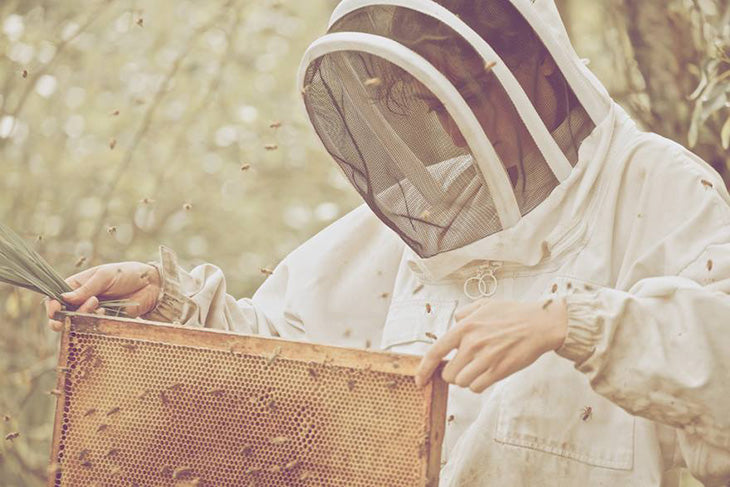
Public speaker, bee advocate, author, conservationist and Rocky store manager, Christina was kind enough to share her expertise about bees and give us all the buzz. She has worked across the globe, from the West Kootenays to Hawaii, on bee conservation and research. From doing lectures on bees to helping found a bee sanctuary, she is a driving force for the bees and their protection.
Bees are major pollinators. They are an important part of the ecosystem and crucial for so much of the plants and animal life on the planet. Honeybees collect pollen and nectar for the hive, and as they do, they pollinate plants. The nectar is depleted of water and stored as honey in cells of the honeycomb. Bees actually have a wide range of dietary requirements, and benefit from a variety of plant sources. Honey is actually a complete food source for the adult bees with a complex makeup of nutrients - it also contains hydrogen peroxide making it antibacterial. Meanwhile, pollen is a pure protein source and is fed to the baby bees.
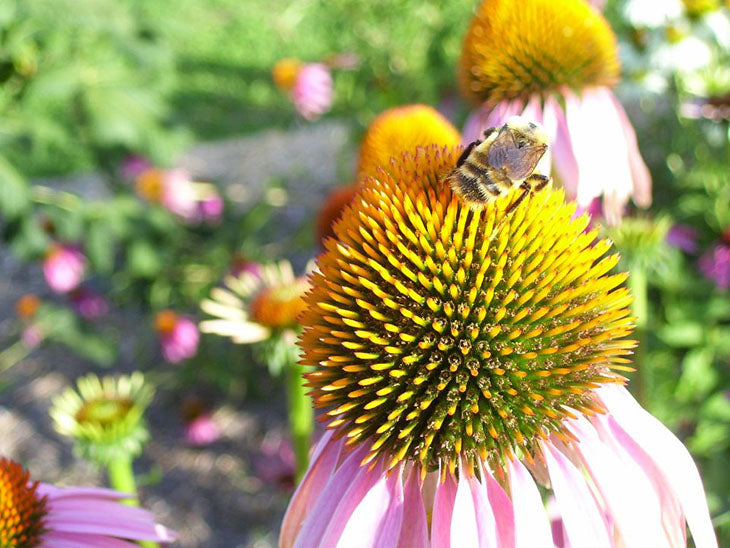
Fun Fact: Did you know bees have facial recognition? They get to know their beekeeper and you really do bond and have a relationship with them. Some are calm and inviting while others are more grumpy. You learn how to work with their personalities.
Bees are part of so many different industries in the world. People sometimes think that only fruit and vegetables are impacted by bees, but many industries from agriculture to textile to dairy would be impacted if the bees disappeared. All these items require pollination, from what animals eat to what grows to make clothing.
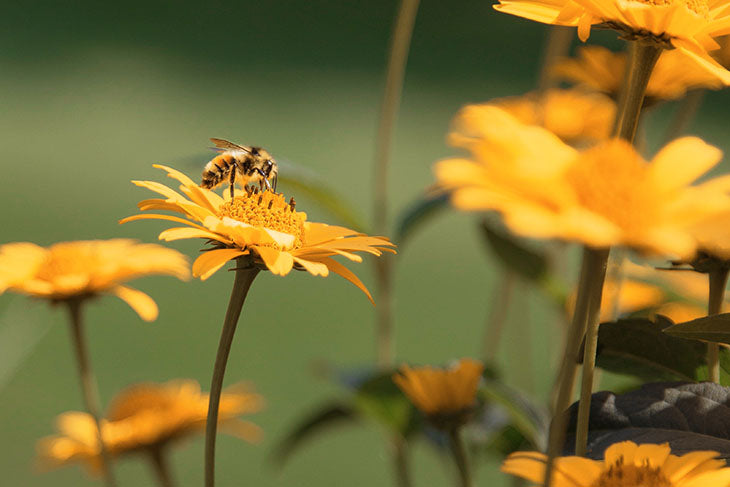
It's difficult to hear of any species struggling on the planet but the bee is such a powerful one because you can see the personal connection right away. Without pollination, we would be without many flora and fauna, food crops, textile and animal food. All these things we take for granted, and we don't realize the direct link to these little tiny inspects.
Right now, the bees are at serious risk, but there are things happening across the globe that are pushing the envelope and helping the future.
What a lot of people are unaware of is that most of our commercial agriculture industry relies on something called migratory beekeeping to meet the pollination demands of Monoculture. Monoculture means that you are growing one massive crop. You see this in everything from canola to the highly publicized almond crops. Often producers have to bring in beehives to pollinate the crops in these monoculture fields because natural pollinators cannot survive year-round without other forage.
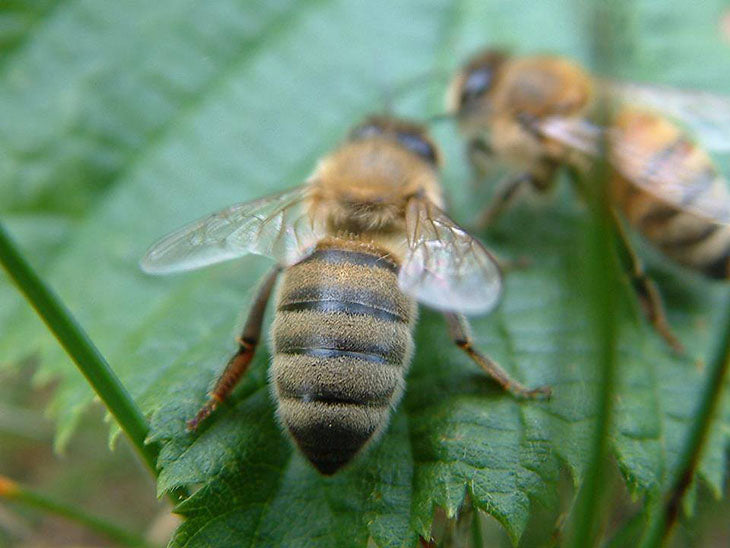
Astonishingly, 1.6 million colonies of honeybees are used for the almonds alone. It can be really stressful for the bees to travel this much. Some beekeepers even report a large percentage of their hive is lost when they return home. However, this depends on a variety of external factors such as what the producer is using on and in their fields.
There has been a shift in the way people work with bees towards more sustainable practices. Natural beekeepers are supporting bee colonies without the use of chemicals in their hives and some are actually using essential oils to help combat things like Varroa mites (a parasitic mite that devastates bee colonies).
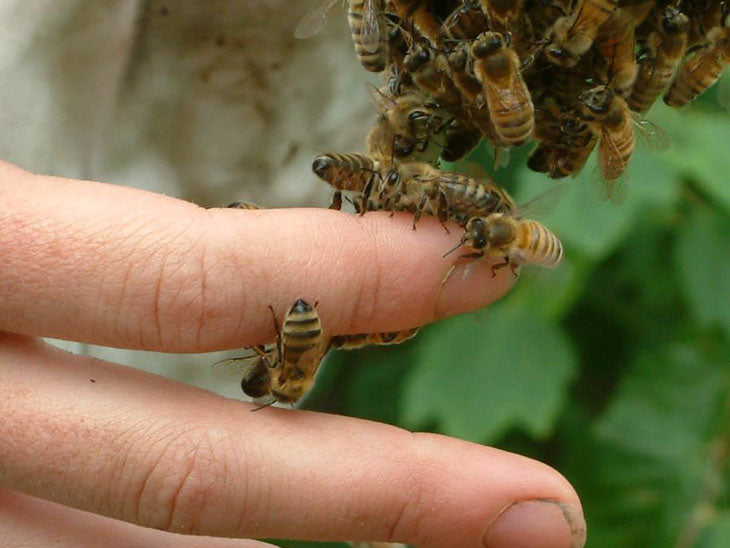
As well, a lot of agricultural producers are changing their ways to use more sustainable practices and more natural practices. One of the largest almond producers in the world actually reduced the use of pesticides, diversified crops and brought in bee colonies to live year round. This allowed the bees to pollinate the almonds, but also find other sources of food in the area. This kept the bees healthy and happy. In the end, the producer had the best crop they have ever had - which is great economically and environmentally.
There are some life or death situations where bees need to have their diet supplemented. The short summer season in Canada means that bees may not have enough food in the spring or to get through the winter. In these cases, the bees need to have sugar feeds for survival. Unfortunately, sugar is an empty Carbohydrate so by adding plant essences like herbal tea or properly diluted essential oils they still get some of the plant essence and micronutrients. There has been some great research into the use of Essential oils and bees. Interestingly enough there are references to ancient cultures use of plant essences and bees.
Another thing to think about - I would often use Lavender when I was working with the bees, they communicate with pheromones. So if you smell like an animal or a human, they may mistake you as a threat. But if you smell like a flower they actually don't mind you as much.
Backyard beekeepers are hobbyists keeping bees for the joy of them, to pollinate small scale gardens and to harvest the many medicinal bee products. Having smaller apiaries on diversified farms is a sustainable model of agriculture and apiculture.
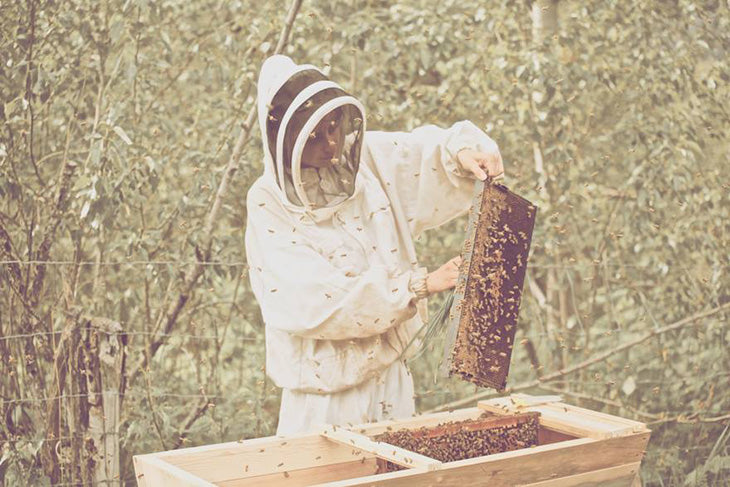
There has been a shift in mentality to love and care for the bees. Beekeepers form relationships with their bees and begin to think about what they can do for them rather than what they can get from the bees. Sustainable beekeepers only harvest the true excess honey and often feedback their own honey in periods of dearth to eliminate the need to feed sugar. A bee colony can produce enough honey to share with their caretakers usually after a year or two.
There are so many ways to help the bees, especially in urban centers. Right now, there are so many cities that you can keep bees. With changes in bylaws, it is becoming more popular. There are legitimate concerns to having bees in urban centres however Bylaws have been really good at addressing these concerns and reducing potential issues.
Speaking of urban centers - bees thrive in urban areas. Cities plan landscaping for full season blooms and all the backyard gardens add a huge amount of diverse food sources, this makes urban centres "open buffets" to bees.
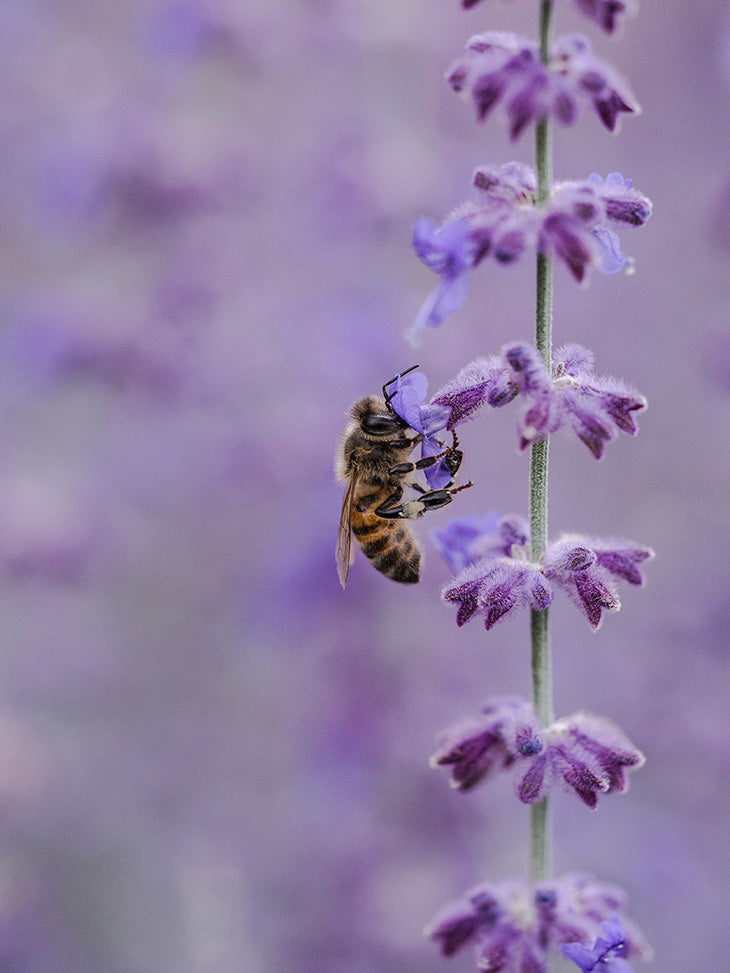
Funny enough, dandelions are the best thing for the bees in the spring. Those darn dandelions. They are one of the first plants that bloom in the spring and are highly medicinal. If people could leave their dandelions it would make a huge difference not only to bees but other pollinators like butterflies.
The plants bees love:Gardener Tip: if you are growing things for pollinators - grow/plant double the amount - like thyme and mint - plant double what you are going to use for culinary, and let the other half go to flower to feed the bees!
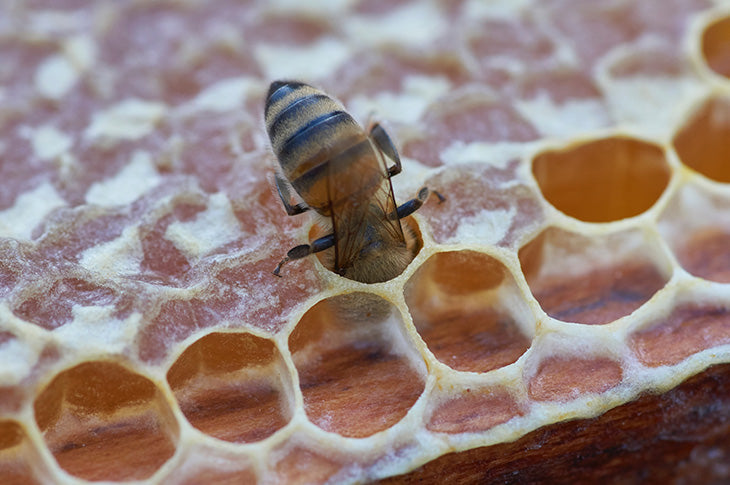
There are ways to choose honey and other bee products that is not cruel and is actually sustainable.
Some great tips for choosing sustainable bee products:
Good to know:One common beekeeping practice is smoking the bees. This triggers a response similar to a forest fire. It triggers a behaviour called gorging where the bees gorge on honey in case they have to leave the hive. They may not attack a beekeeper, but the smoke is very stressful.
At Rocky Mountain Soap Company we are all about the bees. We use organic and/or locally sourced, honey and beeswax. We also use a beeswax supplier who uses environmental, natural, from the bee practices. We are about natural at Rocky and believe in completely natural ingredients. We choose great ingredients that have wonderful benefits for your skin and body.
Comments will be approved before showing up.